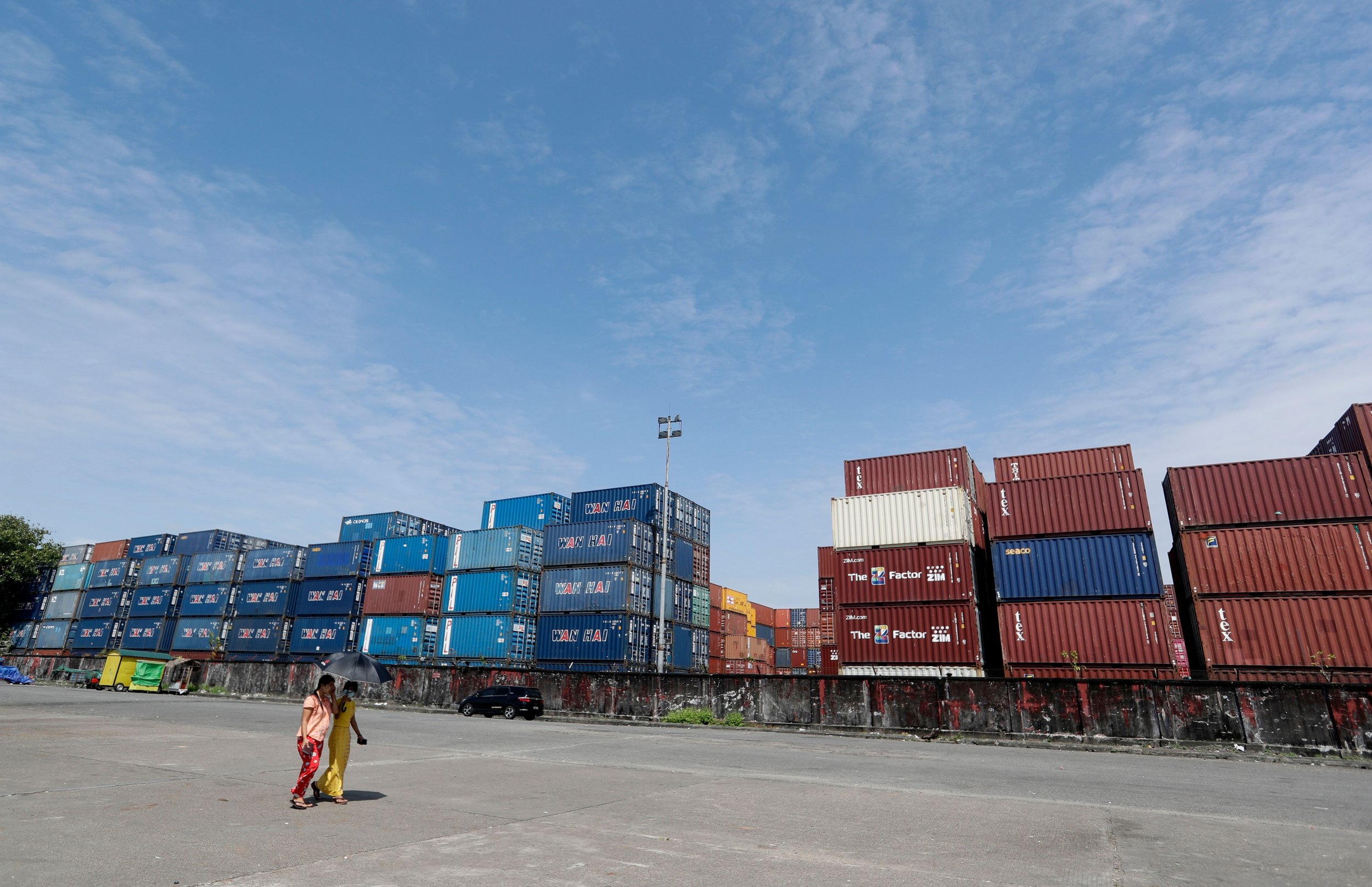PUBLICATIONS
Illuminating the Role of Third-Country Jurisdictions in Sanctions Evasion and Avoidance (SEA)
Sanctions are a crucial tool for exerting influence internationally yet understanding of the impact of sanctions evasion or avoidance (SEA) and third-country involvement is limited. This report reveals that third countries are more likely to engage in SEA when they have trade and commercial capacity, particularly in professional advisory, financial services, shipping and logistics sectors. Private commercial actors within these sectors, with an economic interest in engaging in SEA may find opportunity to do so.
Dr Liam O’Shea, Olivia Allison, Gonzalo Saiz & Alexia Anna Hack
October 2023
Under the Radar: How Russia Outmanoeuvres Western Sanctions with Help from its Neighbours
This paper examines the practices used to evade sanctions imposed on Russia after its invasion of Ukraine in 2022, focusing on the import–export operations of Russia, Belarus, Georgia, and Kazakhstan. The research finds that sanctions have not cut supplies to Russia but have instead empowered informal trade networks and intermediaries. Georgia and Kazakhstan have indirectly benefited from the increased transiting trade; however, the impact on the shadow economy and traditional organised crime has been minimal because sanctions-busting is not illegal in these countries.
Dr Erica Marat & Dr Alexander Kupatadze
August 2023
How to seize a billion: exploring mechanisms to recover the proceeds of kleptocracy
This briefing note summarises research that explores alternative asset recovery mechanisms that could help respond to the immediate policy goal surrounding Russian-linked sanctioned assets, and also contribute to strengthening the broader asset recovery framework in the UK for the longer term.
Maria Nizzero
March 2023
Human trafficking in Afghanistan: what hope for change?
Decades of wars, internal conflicts and political instability have driven millions of Afghan families into poverty and increased human suffering and vulnerabilities, eroded community resilience, and amplified human trafficking activities (and in several cases also created new forms of these practices). This chapter first provides a brief overview of the main trafficking forms, and their widespread reach and practices in the Afghan context, both before and after the Taliban’s takeover in August 2021. Second, it discusses the potential implications and impact of the new Afghan government, international actors and non-governmental organisations’ policies, intentions and perspectives for the multiple humanitarian crises in the country, especially for the development of ways to address human trafficking in particular. I argue for prioritising humanitarian assistance. Stakeholders need to pursue a pragmatic approach to responses and negotiations that puts human lives at its centre, to prevent worsening the humanitarian crises, exacerbating vulnerability to human trafficking, and causing further loss of life and other harms.
Thi Hoang
November 2022
Political won’t? Understanding the challenges of countering IFFs
Finding responses to illicit financial flows (IFFs) and preventing the extraction, movement and secretion of wealth from the licit global economy has become a growing policy preoccupation. The scale of IFFs and their continued growth has been linked to damaging consequences for governance and the building of peaceful, inclusive societies that achieve development for their citizens. This paper draws on research and evidence from by the Global Initiative Against Transnational Organized Crime (GI-TOC) and beyond to explore how and why responses to IFFs are falling short.
Tuesday Reitano
June 2022
Illicit financing in Afghanistan: methods, mechanisms and threat-agnostic disruption opportunities
Illicit actors in Afghanistan, including drug traffickers, warlords, terrorist groups, and even former government officials, exploit the country to achieve their own political and economic objectives. This paper provides a historical and contemporary overview of illicit financing activities in Afghanistan. It uses a terrorist financing framework to explain the various mechanisms involved in how illicit actors raise, use, move, store, manage, and obscure their funds. Specific jurisdictions used for illicit finance and global financial vulnerabilities that illicit actors with a nexus to Afghanistan exploit in their financial activities are discussed, outlining the threat-agnostic capabilities that could tackle some of these illicit financial challenges.
Jessica Davis
May 2022
Human trafficking in the Afghan context: caught between a rock and a hard place?
Decades of wars and internal conflicts have driven generations and millions of Afghan families into impoverishment, illiteracy, unemployment, and displacement, rendering them unable to provide for their household members, particularly children. Political instability and conflicts have increased human suffering and vulnerabilities, eroded community resilience, stripped people of legitimate and viable economic options, opportunities, and livelihoods, as well as amplifying (in several cases also creating new forms of) human trafficking activities and practices. Drawing on existing academic and grey literatures, expert interviews and media reports, this paper first provides a brief overview of human trafficking situations, forms, their widespread reach and practices in the Afghan context before and after the Taliban’s takeover in August 2021. Second, it discusses the potential implications and impact of various actors’ policies, intentions and perspectives both on the humanitarian crises in Afghanistan, and on human trafficking in particular.
Thi Hoang
May 2022
Combating money laundering: does implementing the Financial Action Task Force recommendations bite?
The Financial Action Task Force (FATF) focuses on combatting money laundering. In February 2012, it codified its recommendations, ‘FATF Recommendations 2012’, consisting of a framework of measures and international standards to combat money laundering and terrorist financing. Once a country agrees to follow the recommendations, it has to produce its anti-money laundering (AML) framework that FATF can assess. In this paper, we attempt to answer a simple question: is this working? We look at a group of eight countries in Africa and the Middle East that in the 2012– 2020 period have voluntarily agreed to implement these recommendations and test whether suspected illicit financial flows (IFF), measured through the trade-gap methods, decline after the decision to implement FATF recommendations. Our results point to a reduction of the trade gap characterising tax avoidance through import under-invoicing and/or Trade Based Money Laundering (TBML) through export over-invoicing.
Sami Bensassi & Arisyi Fariza Raz
May 2022
Targeted sanctions and organised crime: impact and lessons for future use
This research reviews existing evidence on the use and impact of targeted sanctions to disrupt organised criminal activity. It focuses on two case studies, Colombia and Libya, in differing regions of the world and with different exposure to organised crime-focused sanctions. The research analyses organised crime-related sanctions data, examines the current state of knowledge relating to the implementation and impact of these sanctions, and draws on the two case studies to identify a number of factors that influence the effectiveness of organised crime-focused sanctions. While the research focuses on other jurisdictions with track records of using sanctions to disrupt organised crime, implications for the UK are also explored, with a view to informing UK policy thinking on the potential establishment of an organised crime-focused sanctions regime.
Cathy Heinlein, Sasha Erskine, Elijah Glantz & Tom Keatinge
May 2022
Political will and combatting serious organised crime
This evidence review explores the literature on political will in relation to organised crime, kleptocracy, illicit finance, sanctions, trafficking and COVID-19. Findings demonstrate the importance of political will for effectively tackling SOC, illicit finance and transnational corruption, but also why it is so challenging to find political will, measure it and create demand for it.
Iffat Idris
May 2022










